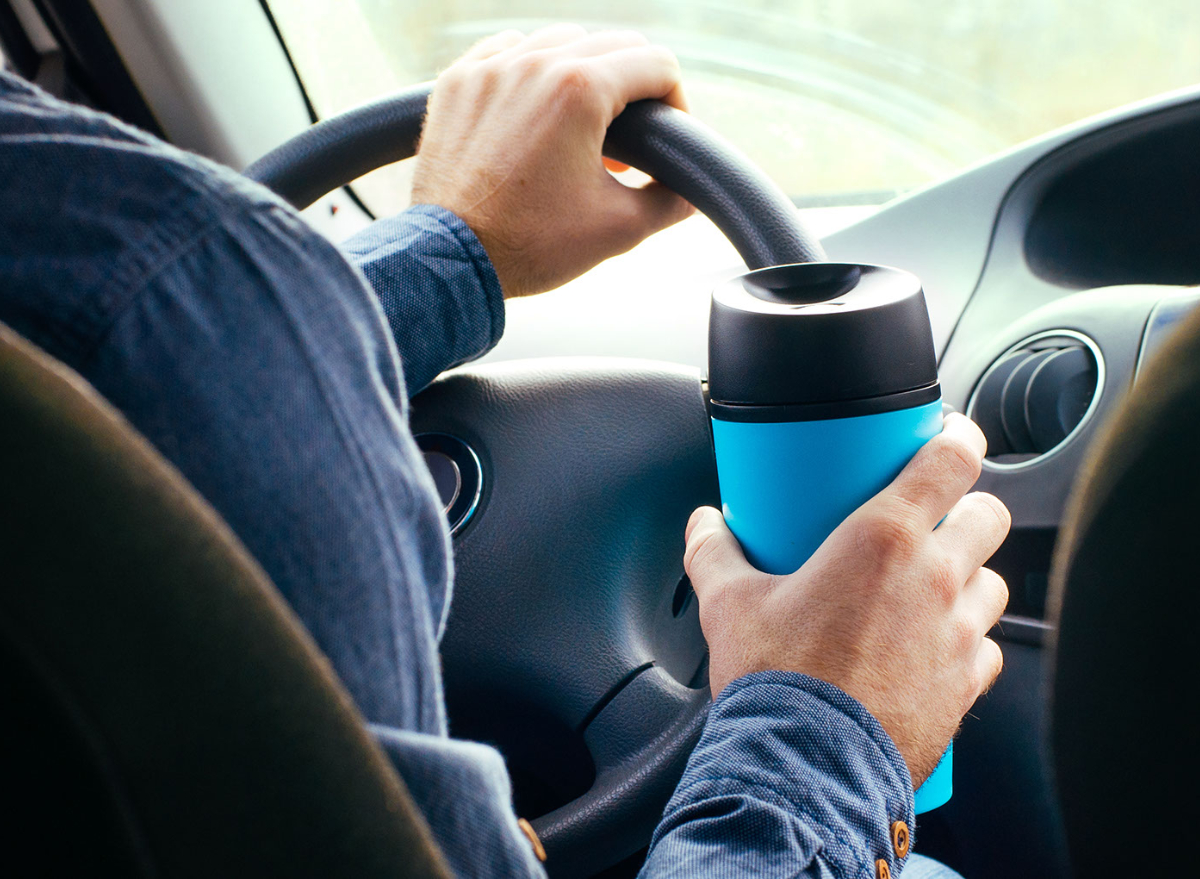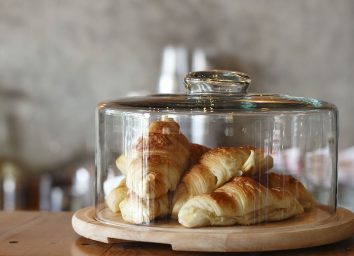One Major Side Effect of Drinking Coffee From a To-Go Cup, According to Experts

You fell in love with your at-home coffee routine during the pandemic, but you might be left with a different taste in your mouth as you begin to sip your daily cup of joe on-the-go again. Thankfully, a psychology expert has revealed that there’s a scientific reason why the coffee in your to-go mug tastes simply tastes different than it does in the comfort of your own place.
Coffee just doesn’t taste as great on the fly, a group of Redditors observed.

One Reddit subgroup engaged in a recent discussion on this to-go coffee conundrum. Said u/e2arccos0c:
“Whenever I brew a cup of coffee with my AeroPress to take with me in either a reusable plastic travel mug or a metal (thermo) mug, it tastes much worse than when I drink it in a regular mug at home (same brewing method, same beans, same grind size etc.). Even if I drink it right away, it tastes worse. Why is that? Does anyone experience the same and has found a type of travel mug such that this does not happen?”
Could it be something other than taste?

The responses were quick to trickle in, with u/Greedy_Asparagus_582 gaining 70 upvotes (and counting) for this simple response:
“I think a big part of it is that you can’t smell the coffee. The aroma is a huge part of the taste experience, and you don’t get that in most travel mugs.”
The explanation, according to a gustatory science expert.

Indeed, u/yurikastar shared insight from Charles Spence, an experimental psychologist who heads the Crossmodal Research Laboratory at the University of Oxford and is a consultant on consumer experience, specializing in food studies. Also the author of several books on the science of eating, including Gastrophysics, Spence is quoted saying:
“Given how important smell is to our enjoyment of food and drink . . . Perhaps the best (or should that be worst?) example of poor olfactory design are those plastic lids that are routinely placed over millions of paper cups of hot coffee. While these lids undoubtedly allow you to drink without having to worry about spillage, what they singularly fail to do is to allow the drinker to appreciate the orthonasal aroma of the cups’ contents by sniffing them . . . Once again, it is the orthonasal olfactory hit that is mostly missing from the experience. We can either sniff the contents or we can drink them, but there is simply no way that we can do both at the same time, no matter how hard we try.”
There are other forces at play, as well.

Members of the subreddit also discussed another interesting theory. Said u/CMDA, “Plastic and metal will impart some taste/react chemically with the coffee.” They continued:
“I know, I know, people say stainless steel has no influence on the taste and whatever, but in my experience that is simply not true. Now, I’ve had a stainless steel thermos mug I used to use that was mostly fine (as in, didn’t affect the taste much, but sometimes it would after washing it), but ultimately gave up using it and just use plain ol’ glass/ceramic cups instead for unadultered taste (plus I can taste the flavor notes much better when the coffee is lukewarm to cold so I prefer that in detriment of hot coffee).
“Also, the mug started getting some coloration that won’t wash away from all the coffee I drank from it, which clearly tells me it’s not completely neutral as some say.”
There’s some of the science behind why your favorite sip varies in taste from time to time. Stay on top of the latest coffee and food news by signing up for the Eat This, Not That! newsletter.
Read more:








